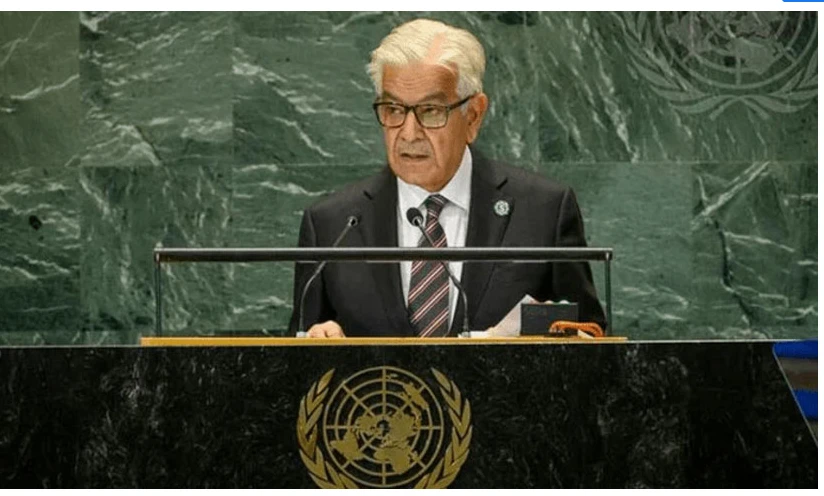Tragedies like Gaza won’t allow sustainable progress: Asif

Stay tuned with 24 News HD Android App

Pakistan has called the UN’s Pact for the Future, which is aimed at transforming the multilateral system, an expression of the international community’s collective determination to respond to global challenges, and called for upholding the commitments made in the game-changing document, reported 24NewsHD TV channel.
“The Pact will be transformative only if we translate the commitments undertaken into concrete action,” Defence Minister Khawaja Muhammad Asif told the Summit of the Future on its second and concluding day.
At the outset of his remarks, Asif emphatically warned that “no sustainable development can take place till tragedies like Gaza are perpetuated by the developed world.”
Sunday’s comprehensive pact, which world leaders approved by consensus, aims to strengthen global governance and tackle key challenges facing humanity, including sustainable development, international peace, and technological innovation, youth and future generations and transforming global governance. It also proposes detailed action plans to address these challenges.
“For the over 100 developing countries, the Pact offers an opportunity to revitalize development and to reform the unequal international financial and economic system.,” he said in the iconic hall of the UN General Assembly with heads of state/government and others In this high-level delegates arrayed in front of him.
In this regard, Khawaja Muhammad Asif underscored the need for bridging the $4 trillion SDG (Sustainable Development Goals) financing gap by fulfilling the ODA (Official Development Assistance) commitments; implementing the UN Secretary-General’s SDG Stimulus proposal; re-channeling 50% of the unused 2021 allocation of SDRs (Special Drawing Rights); delivering a more ambitious IDA (International Development Association) by ensuring a robust $100 billion replenishment; enlarging lending by the multilateral development banks; and lowering borrowing costs for developing countries.
The Defence Minister also called for ensuring global economic equity by improving the representation of developing countries in international financial institutions; reviewing the sovereign debt architecture to make it more equitable; adopting an equitable international tax regime; and reforming the WTO (World Trade Organization) to serve as a vehicle for export expansion and development, through preferential treatment for developing countries and avoidance of new environmental protectionism.
“The UN, by virtue of its universal membership and mandate, remains an indispensable platform to propel and monitor implementation of these commitments,” Khawaja Asif said.
He also called for bridging the North-South divide and preventing an East-West fragmentation of the digital space. “We must ensure equitable data governance. And, we must capture and control the power of Artificial Intelligence.”
The Defence Minister emphasized the need to find ways to ease great power tensions and build a new consensus to promote general and complete disarmament, including nuclear disarmament, non-proliferation, and conventional arms control. “The panoply of measures envisaged in the UN Charter must be activated to resolve new and old disputes, including the Jammu and Kashmir dispute,” Khawaja Asif said.
Referring to the UN Security Council’s frequent failure, the Defence Minister said that adding more permanent members — as demanded by India and its allies — will multiply the prospects of its paralysis. “Instead,” he added, “the Council should be adequately enlarged and made more representative by adding more non-permanent, elected members to the Council.”
In conclusion, the Defence Minister said the structure of world order, envisaged in the UN Charter, must not be eroded by the equation of States with non-state entities. “It is only through the decisions and actions of States that we will ensure that succeeding generations enjoy a future of peace, progress, and prosperity.”
